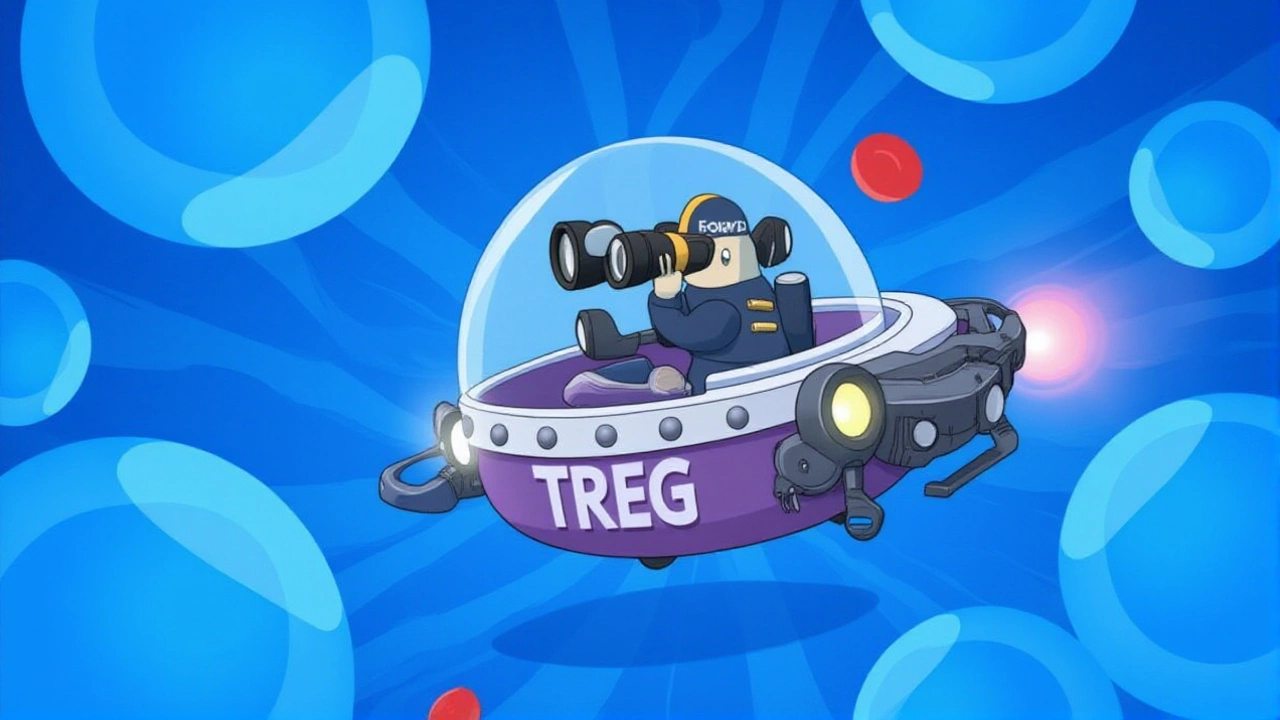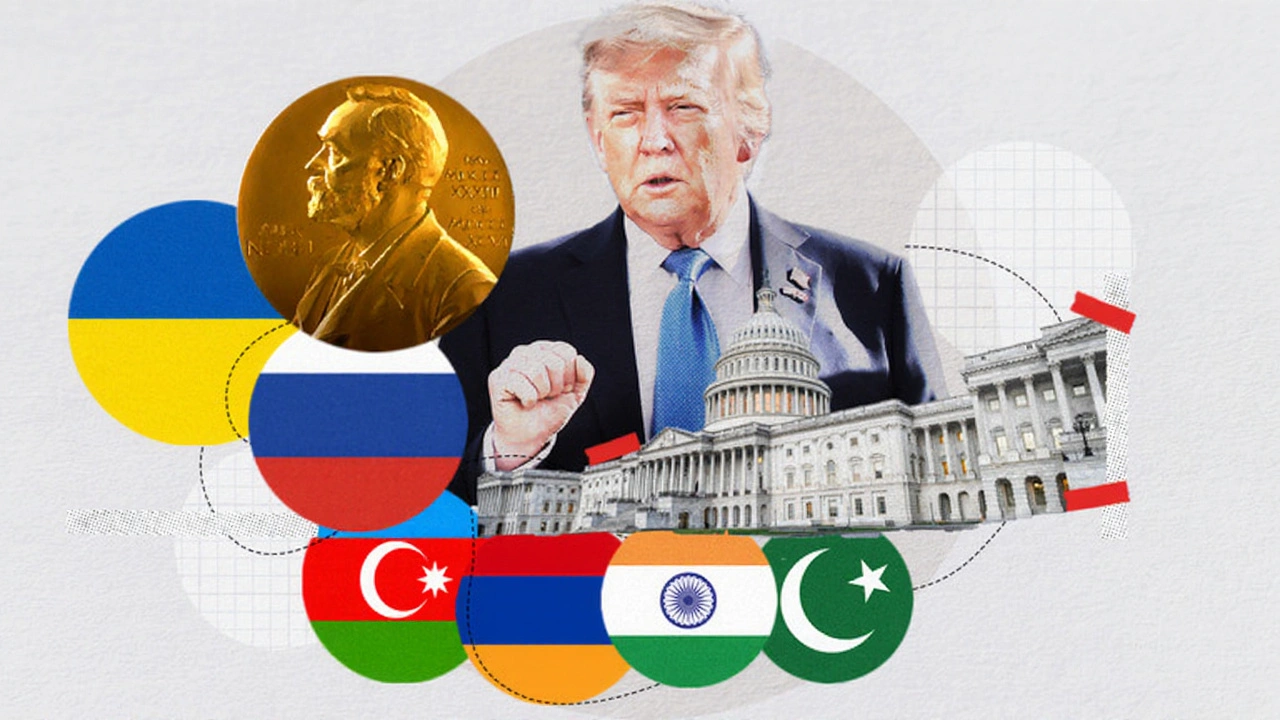When Donald Trump, President of the United States took the podium before the United Nations General Assembly on September 23, 2025, he didn’t just talk about trade deals or defense budgets. He claimed he had saved “millions of lives” by ending seven wars that, in his words, were “un‑endable.” The audacious pitch was clear: he deserved the Nobel Peace Prize, and anyone who ignored that would be insulting the United States.
Trump’s Nobel Campaign Timeline
The campaign started quietly enough in 2018, when the former president first hinted that his foreign‑policy moves—think Abraham Accords or the Syria‑Iran talks—might earn him a peace award. Fast forward to September 2025, and the push turned into a full‑blown media blitz. After the General Assembly speech, Trump addressed senior military leaders near Washington on September 30, warning that “not choosing me would be an insult to the United States.” He’s been meeting lobbyists, commissioning glossy videos, and even sending advisers to Oslo to whisper in the ears of Nobel Committee members.
What the Nobel Committee Actually Looks For
Inside the Nobel institute, the atmosphere is far less dramatic. Kristian Berg Harpviken, secretary of the Nobel Committee, told reporters that the surge of media attention is “hard to miss,” but it doesn’t automatically translate into a nomination. He explained that several campaigns run each year, some “sophisticated,” some “transparent,” and that the committee evaluates the whole picture: concrete achievements, lasting impact, and the nominee’s character.
Unlike many awards, the Nobel Peace Prize is decided by a secret ballot, and the list of nominees stays sealed for 50 years. Nominations close in January, meaning any endorsement Trump gathered after that point won’t even be on the ballot for the October 10, 2025 announcement in Oslo. That timing snag alone cuts his chances thin.
Expert Analysis of the Claims
Professor Mokhefi‑Ashton, a political scientist who follows Nobel selections, says the committee will look for “durable peace.” He points out that several of Trump’s touted deals are still in their infancy. The Israel‑Hamas negotiations, for example, were only re‑opened last week with the United States, Qatar, and Egypt acting as mediators. “You can’t award a prize for a peace process that just started,” he warned.
Another critic, a senior analyst at the Royal Swedish Academy of Sciences, slammed the Trump administration’s climate‑change denial and perceived attacks on academic freedom, describing them as “reckless.” Those stances clash with the Nobel’s broader ethos of fostering global cooperation.
Even within Trump’s own camp, there’s a hint of pragmatism. A Ukrainian lawmaker who once advocated for the former president’s nomination withdrew it this week, citing the “lack of concrete, lasting outcomes.” That withdrawal sent a clear signal that not every ally is on board.

Political and Diplomatic Repercussions
Beyond the prize itself, Trump’s pursuit is reshaping diplomatic chatter. Some foreign leaders have started to question whether the United States is using the Nobel as a bargaining chip. One unnamed European diplomat told our bureau that “the idea of a transactional Nobel award would cheapen the prestige of the whole institution.”
Domestically, the push has split Republicans. A handful of senators praised Trump’s confidence, while others warned that “using a Nobel prize to score political points is dangerous.” The debate underscores how the Nobel, though ostensibly apolitical, can become a proxy battlefield for larger geopolitical contests.
Looking Ahead: The Future of Trump’s Quest
Even if the October 10 announcement leaves Trump empty‑handed, experts say he’s unlikely to quit. “People underestimate his long‑term planning,” Mokhefi‑Ashton notes. Trump’s team is already scouting 2026 and 2027, eyeing conflicts where a U.S.‑led ceasefire could be claimed as a victory.
In the meantime, the Nobel Committee will follow its usual protocol. The peace prize announcement will close a week of separate award ceremonies for medicine, physics, chemistry, literature, and economics. Whether Trump’s name appears on the secret list remains a mystery—one that won’t be unveiled until 2075.
Frequently Asked Questions
How does Trump’s Nobel push affect U.S. diplomatic credibility?
The aggressive lobbying has raised eyebrows abroad. Some allies worry the U.S. may be willing to trade diplomatic concessions for personal accolades, which could erode trust in future negotiations.
What are the official criteria the Nobel Committee uses for the Peace Prize?
The committee assesses concrete contributions to lasting peace, the durability of agreements, and the overall character of the nominee. They also weigh whether the effort reflects a broader commitment to peace, not just a single diplomatic win.
Why won’t nominations after January 2025 count for this year’s prize?
Nobel nominations close on 31 January each year. Any endorsement received after that deadline is only eligible for the next cycle, meaning Trump’s recent claims won’t make it onto the ballot for the October 2025 award.
Has any sitting U.S. president ever won the Nobel Peace Prize?
Yes. President Barack Obama received the prize in 2009, largely for his vision of a world without nuclear weapons and his outreach to the Muslim world. That precedent fuels Trump’s belief he could follow suit.
What are the next steps after the Nobel Peace Prize is announced?
The laureate receives a medal, a diploma, and a cash award of 11 million Swedish kronor. The ceremony takes place on 10 December in Oslo, followed by a press conference where the winner can outline future peace initiatives.
